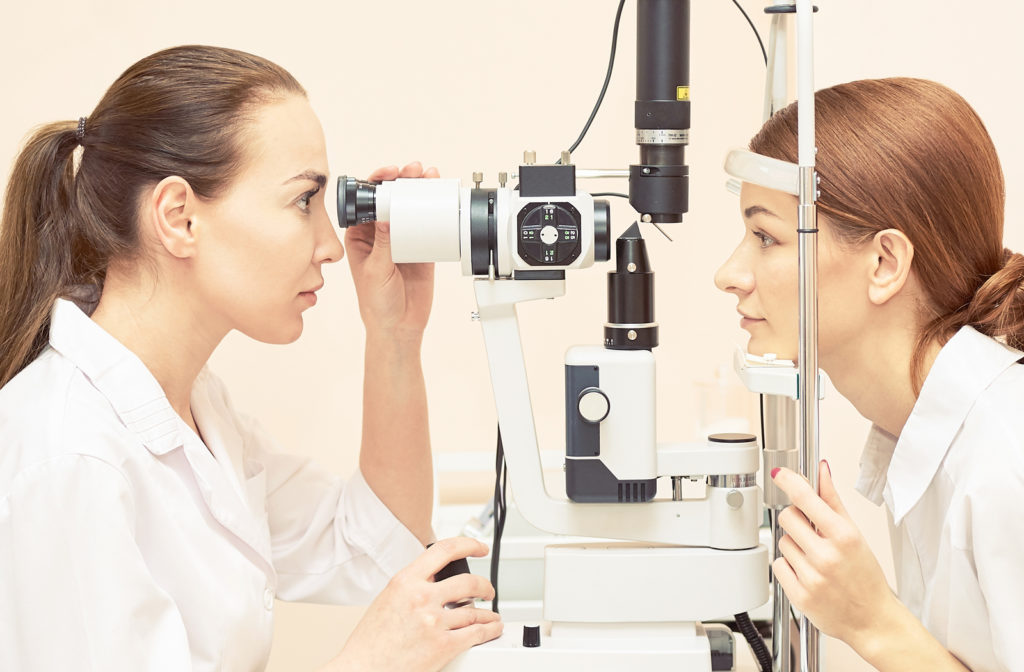Many patients choose to postpone their eye exams, especially if they don’t see any significant changes to their vision. But little do they know; routine vision care is so much more than getting your prescription updated and choosing a new pair of fashionable specs.
A visit to your optometrist can be life-changing, not just for your eyesight but also for your overall health.
7 Eye-Opening Reasons
We’ve told you that a visit to the optometrist can positively impact your health, but how exactly does that work? Here are 7 great reasons to visit your eye doctor:
- Eye Emergencies
Eye emergencies require immediate treatment. Quick action can save you or your loved ones’ vision. An eye emergency can be one of the following:
- Eye Injury
- Eye pain
- Bleeding eye
- Swelling
- Chemical splashes
- Tears, rips, or punctures
Patients who experience an injury or trauma to their eyes may not know who to contact first, their family doctor or optometrist. Our team recommends contacting your eye doctor immediately if the injury is eye-related.
Eye care professionals are better equipped to handle eye injuries and trauma, and will strive to save your vision
.Eye Health Can Change Quickly
Keeping up with your routine eye care appointments can help your optometrist determine the overall baseline for your visual health. Your eye doctor can more easily detect vision problems or diseases when more familiar with your eyesight.
Your eye care team uses top-of-the-line diagnostic equipment to scan and assess for abnormalities at each scheduled eye exam. Remember that eye conditions often appear without early warning signs and can significantly impact your vision
Visiting your optometrist regularly means knowing your visual health is in great hands.
- Diagnosing Conjunctivitis
You may recognize conjunctivitis by its more popular name: pink eye. Parents and teachers may already be familiar with the signs and symptoms of this dreaded, highly contagious eye condition.
Pink eye has several possible causes, and your optometrist can provide a guaranteed diagnosis and treatment. Self-diagnosing and treating conjunctivitis without consulting a professional may inhibit recovery.
If you suspect that you or one of your loved ones is suffering from pink eye, contact your optometrist for an appointment.
- Detecting Glaucoma
Glaucoma is a group of eye diseases that gradually targets the optic nerve. If left untreated, this prevalent eye disease can lead to vision loss. Glaucoma typically affects older adults, and is one of the primary causes of blindness in Canada.
Your optometrist carefully searches for signs of glaucoma in every eye exam. Keeping up with routine visits can help your eye care team catch and manage glaucoma in its early stages, possibly mitigating vision loss and maintaining your overall visual health.
- Detecting Myopia
Myopia (nearsightedness) is a visual condition that occurs when the cornea’s curvature affects how light reaches the retina. This refractive error results in closer objects appearing, and objects at a distance appearing blurry or out-of-focus.
Nearsightedness is a common condition that typically develops in childhood, and the Canadian Association of Optometrists (CCAO) suspects that it affects approximately 30% of Canadians.
Your child’s routine eye exam is a critical step towards detecting myopia, and ensuring they receive proper care and treatment.

- Improved Learning for School-Aged Children
Parents should monitor their children’s visual centres starting at an early age, especially throughout the school years. Studies have shown that the human eye changes shape between the ages of 8 and 20, which can significantly impact eyesight.
An undiagnosed vision problem during the school years can affect a child’s love of learning, and routine eye care can help encourage a young scholar’s academic success.
- Detecting Other Health Issues
You may have heard “eyes are the window to the soul”, but may not be aware that your eyes are also a window to detecting health complications in the body. Strange, but true!
In your routine eye exam, your eye doctor can help detect conditions in the body, like:
- Diabetes
- Heart disease
- High Blood Pressure
- Stroke
- Kidney Disease
Your optometrist looks closely at the blood vessels in your retina during an eye exam; these vessels can often indicate the state of your body’s circulation system. Early detection of health conditions can result in swift treatment, and may be life-saving.
A Lifetime of Healthy Vision
Routine visits to your optometrist are not just about updating prescriptions; they’re the path towards a healthier lifestyle for you and your family.
If it’s been a while since your last appointment, contact our incredible team at Aurora 2020 for your next eye exam. We can help you take control of your visual health, and keep your eyes smiling.



